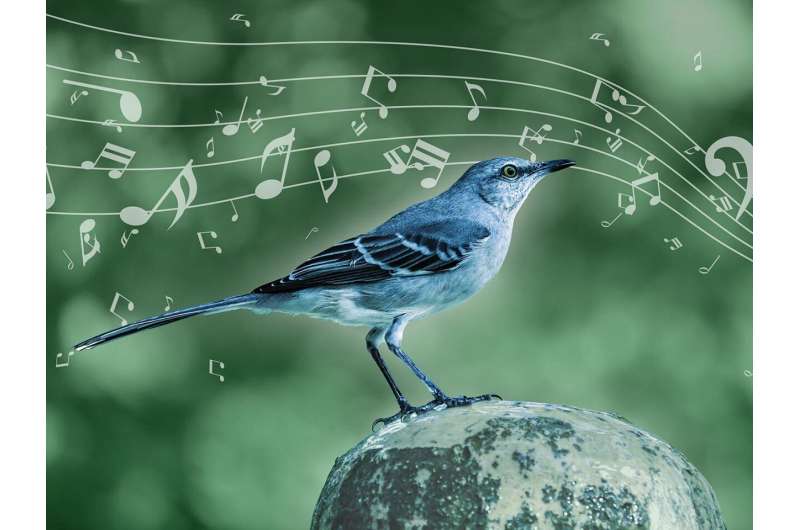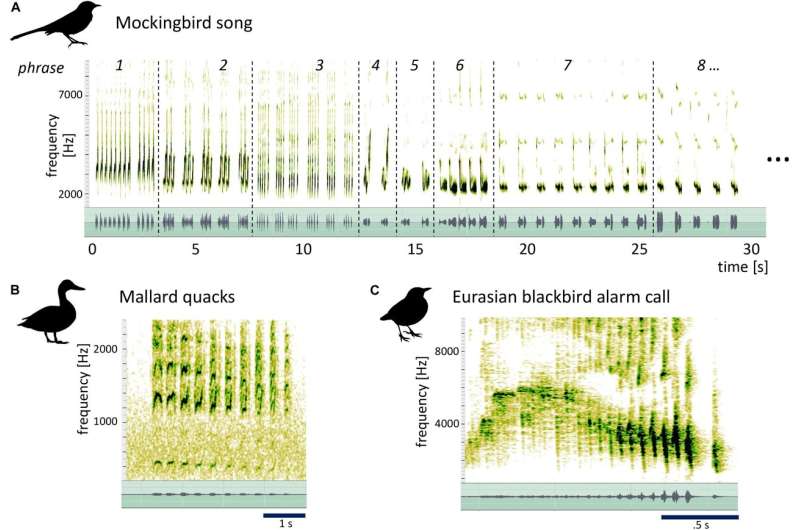Mockingbird song decoded

The North American mockingbird is famous for its ability to imitate the song of other birds. But it doesn't just mimic its kindred species, it actually composes its own songs based on other birds' melodies. An interdisciplinary research team has now worked out how exactly the mockingbird constructs its imitations. The scientists determined that the birds follow similar musical rules as those found in human music, from Beethoven to Kendrick Lamar.
The song of the mockingbird is so complex that to investigate it required a joint effort of experts from very different fields. Neuroscientist Tina Roeske of the Max Planck Institute for Empirical Aesthetics, field biologist Dave Gammon of Elon University, and the music philosopher David Rothenberg of the New Jersey Institute of Technology combined their different approaches and areas of expertise to conduct this highly unusual study, the findings of which have just been published in the open-access journal Frontiers in Psychology.
Lead author Tina Roeske designed the algorithms used in testing the team's hypotheses. "When you listen for a while to a mockingbird," she explains, "you can hear that the bird isn't just randomly stringing together the melodies it imitates. Rather, it seems to sequence similar snippets of melody according to consistent rules. In order to examine this hunch scientifically, however, we had to use quantitative analyzes to test whether the data actually supported our hypotheses."
The results were unambiguous. The authors identified four compositional strategies that mockingbirds use in transitioning from one sound to the next: changing timbre, changing pitch, stretching the transition (lengthening it in time), and squeezing it (shortening it in time). The complex melodies they create are music to the ears not only of other birds but of humans as well. So, it should come as no surprise that (human) composers of varied musical styles use similar techniques in their work.

As co-author David Rothenberg explains in a YouTube video, the Tuvan throat singing group Huun-Huur-Tu presents examples of timbre change, and pitch change can be heard in the famous opening of Beethoven's Fifth Symphony; the song "Show Yourself" from the Disney film "Frozen 2" itself shows the stretching of sound transitions; and if you listen very closely to Kendrick Lamar's song "Duckworth" from the album "Damn," you'll hear transitions being squeezed, or shortened.
More information: Tina C. Roeske et al, Mockingbird Morphing Music: Structured Transitions in a Complex Bird Song, Frontiers in Psychology (2021). DOI: 10.3389/fpsyg.2021.630115
Journal information: Frontiers in Psychology
Provided by Max Planck Society




















